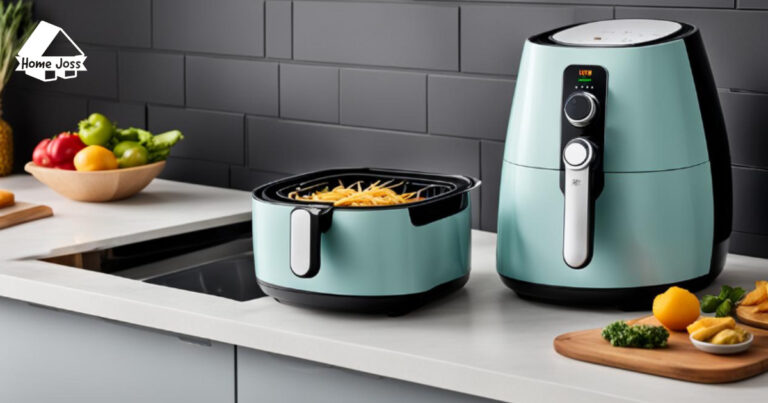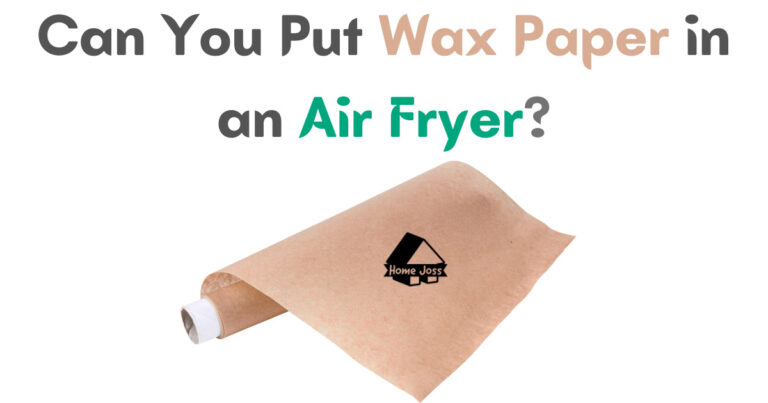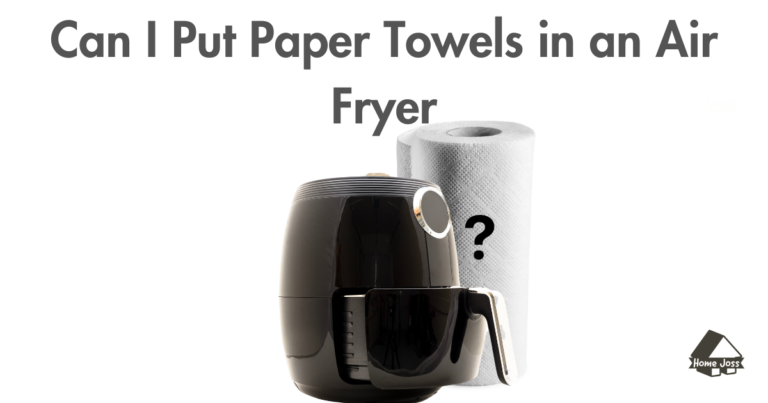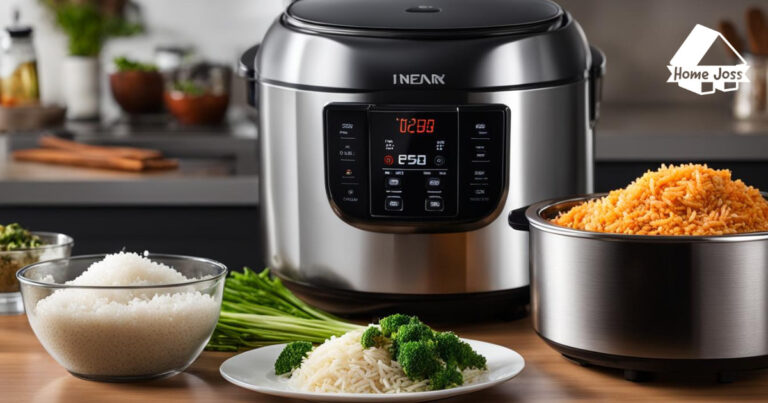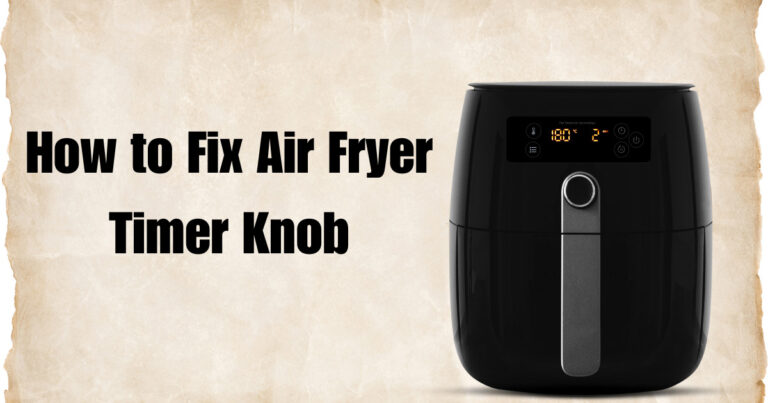If you’re reading this, chances are you’re a proud owner of an air fryer. These innovative kitchen appliances have revolutionized the way we cook, providing a healthier alternative to traditional deep frying.
However, as with any electronic device, there comes a time when you need to bid farewell to your trusty air fryer. But what should you do with it? How can you ensure it doesn’t end up in a landfill, contributing to environmental pollution?
In this article, we will explore sustainable disposal options for your old air fryer, so you can make an informed decision and contribute to a greener future.
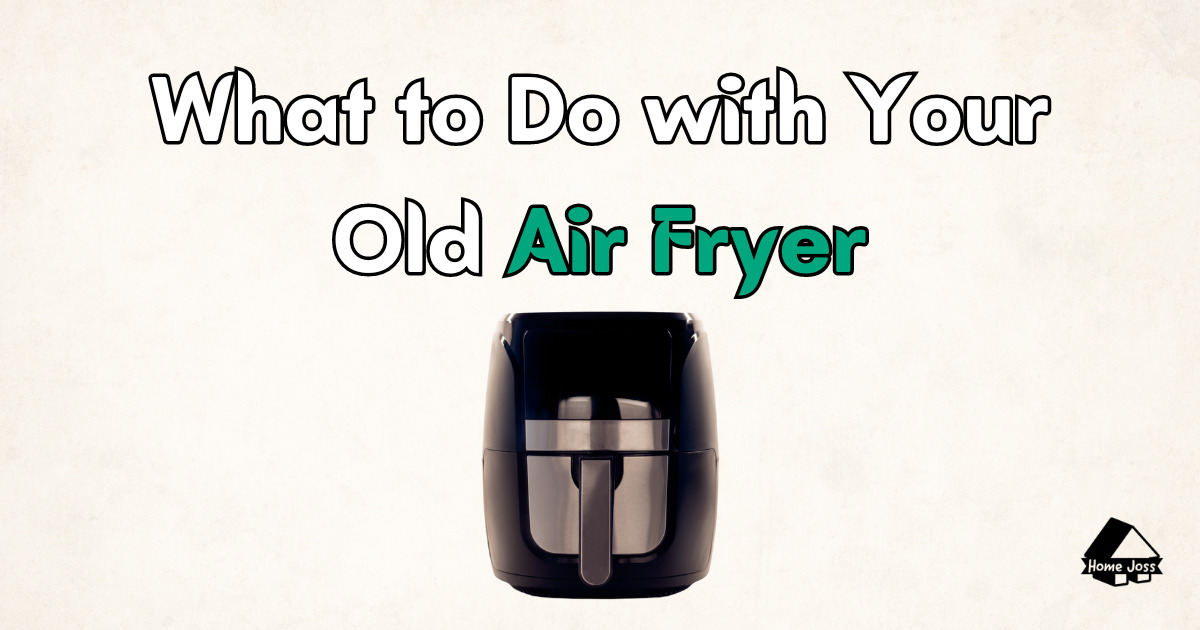
Importance of Responsible Disposal
Before diving into the various disposal options, let’s take a moment to understand why responsible disposal is crucial. Electronic waste, or e-waste, is a significant environmental concern worldwide.
The improper disposal of electronic devices, including air fryers, can lead to harmful consequences for the environment and human health. E-waste often contains toxic materials such as lead, mercury, and cadmium, which can contaminate soil, water sources, and air when not handled properly.
By choosing sustainable disposal methods, you can help mitigate these risks and promote a healthier planet.
1. Recycling: A Sustainable Solution
Recycling is one of the most effective ways to dispose of your old air fryer while minimizing its impact on the environment. By recycling, you allow the valuable materials in the appliance to be recovered and repurposed, reducing the need for extracting and processing new raw materials.
Recycling also helps conserve energy and reduce greenhouse gas emissions associated with the production of new appliances. So, how can you recycle your air fryer?
a. Local Recycling Centers
Check with your local recycling center to see if they accept small electronic appliances like air fryers. Many recycling centers have designated drop-off points or collection programs for e-waste.
They have the expertise and facilities to properly dismantle the appliance, separate the recyclable materials, and ensure they are processed in an environmentally friendly manner.
b. Manufacturer Recycling Programs
Some air fryer manufacturers have their own recycling programs in place. Reach out to the manufacturer or visit their website to inquire about any recycling initiatives they offer. They may provide instructions on how to return your old air fryer for recycling or direct you to authorized recycling partners.
c. Electronic Waste Recycling Events
Keep an eye out for electronic waste recycling events in your community. These events are often organized by local authorities, non-profit organizations, or recycling companies.
They provide a convenient opportunity for residents to drop off their old electronics, including air fryers, for proper recycling. Check your town or city’s website or local newspapers for information on upcoming events.
2. Repair and Reuse: Extending the Lifespan
In a throwaway culture, repairing and reusing items may seem like a foreign concept. However, repairing your old air fryer can be an excellent way to extend its lifespan and reduce waste.
Before giving up on your appliance, consider assessing what needs fixing. If the issue is minor or can be easily repaired, you might be able to bring your air fryer back to life.
a. DIY Repairs
If you’re handy with tools and have some technical knowledge, you may be able to fix your air fryer yourself. Check if the problem lies in a replaceable part, such as the heating element or timer.
You can often find replacement parts online or contact the manufacturer directly to inquire about purchasing them. However, exercise caution when attempting DIY repairs, and always unplug the appliance before working on it.
b. Professional Repairs
If you’re not confident in your repair skills or the issue seems complex, consider taking your air fryer to a professional repair service. Look for authorized service centers recommended by the manufacturer.
They have the expertise to diagnose the problem and carry out repairs safely. While professional repairs may come with a cost, it could be a more sustainable and cost-effective option compared to buying a new air fryer.
3. Donation: Sharing the Joy of Cooking
If your air fryer is still in good working condition but no longer serves your needs, consider donating it to someone who can benefit from it. Donation not only helps reduce waste but also provides an opportunity to support individuals or organizations in need.
a. Charitable Organizations
Numerous charitable organizations, such as homeless centers, nursing homes, and non-profit organizations, often welcome donations of functional household appliances.
Reach out to local charities or search online for organizations that accept donated air fryers. Ensure that the appliance is clean and in good working order before making the donation.
b. Local Communities and Schools
Local community centers, schools, or community kitchens may also appreciate receiving a donated air fryer. These institutions often rely on community support and donations to provide educational programs or meals. Contact them directly to inquire about their needs and donation policies.
4. Selling: Giving Your Air Fryer a Second Life
If your air fryer is still in good condition but you’re ready for an upgrade, consider selling it to someone who can benefit from its use. Selling your old air fryer not only gives it a second life but also allows you to recoup some of your investment.
a. Online Marketplaces
Popular online marketplaces like eBay, Craigslist, or Facebook Marketplace provide platforms for selling used items. Take clear photos of your air fryer, provide a detailed description, and set a fair price.
Be sure to disclose any known issues or wear to maintain transparency with potential buyers. Meet in a safe public place or use secure shipping methods when completing the transaction.
b. Local Buy/Sell Groups
Check if there are any local buy/sell groups or classified ads in your community. These platforms often cater to people looking for pre-owned items within their vicinity. Posting an ad in such groups can help you connect with local buyers interested in purchasing your air fryer.
FAQ about What to Do with Your Old Air Fryer
Can I throw my old air fryer in the regular trash?
No, it is not recommended to throw your old air fryer in the regular trash. Electronic waste should be properly disposed of to prevent environmental pollution and ensure the recovery of valuable materials.
Are air fryers recyclable?
Yes, air fryers are recyclable. They contain valuable metals and components that can be recovered through recycling processes. However, it is important to recycle them through designated recycling centers or programs to ensure proper handling.
Are there any hazardous materials in air fryers?
Air fryers may contain hazardous materials such as electronic parts, metals, and plastics. These materials can potentially harm the environment if not disposed of properly. Recycling and responsible disposal methods help mitigate these risks.
How can I find local recycling centers for electronic waste?
You can find local recycling centers for electronic waste by using online directories or contacting your municipal waste management department. They can provide information on drop-off locations or recycling programs in your area.
Can I donate my old air fryer if it’s not working?
Charitable organizations generally prefer functional appliances for donation. If your air fryer is not working, it is best to recycle it through designated e-waste recycling programs.
Disposing of your old air fryer responsibly is essential for minimizing environmental impact and promoting a sustainable future. Recycling, repair and reuse, donation, and selling are all viable options to ensure your air fryer finds a new purpose instead of ending up in a landfill.
Remember to research and choose the most suitable option for your situation, keeping in mind the importance of reducing electronic waste and preserving our planet for future generations. Let’s make a difference, one appliance at a time.

